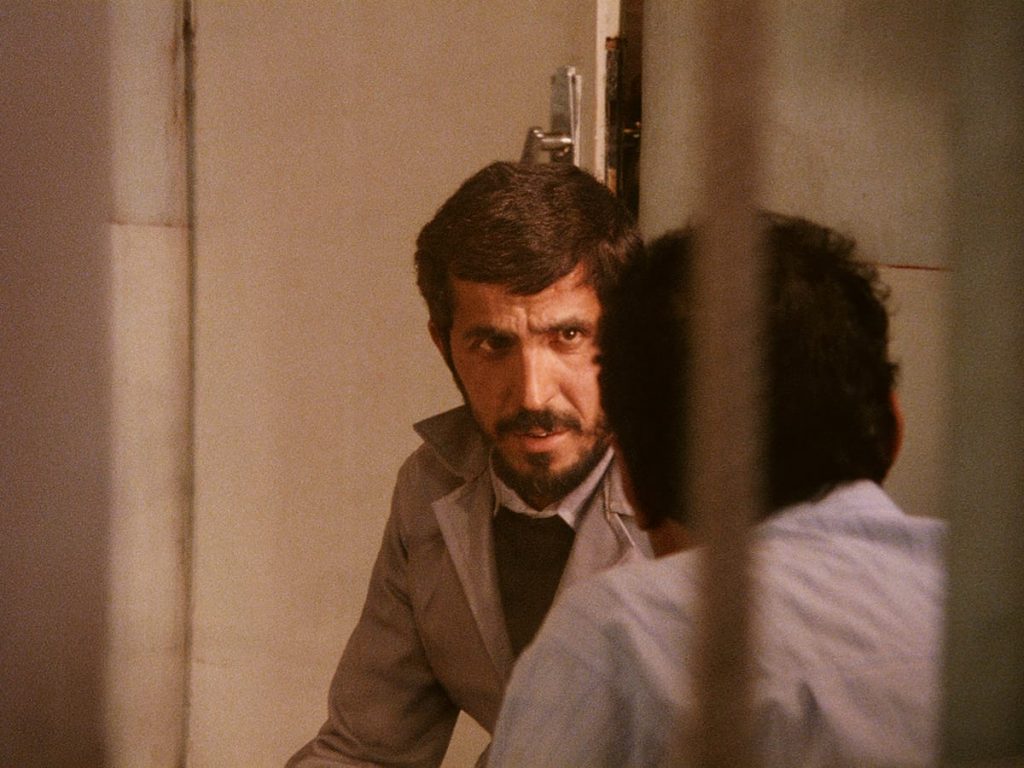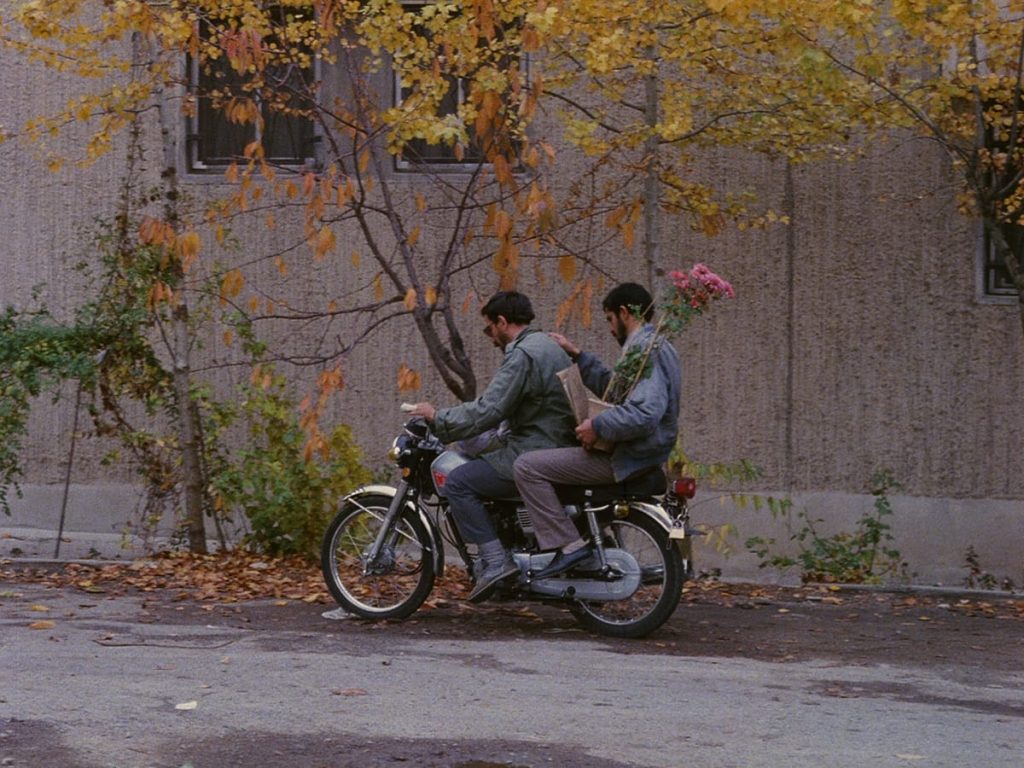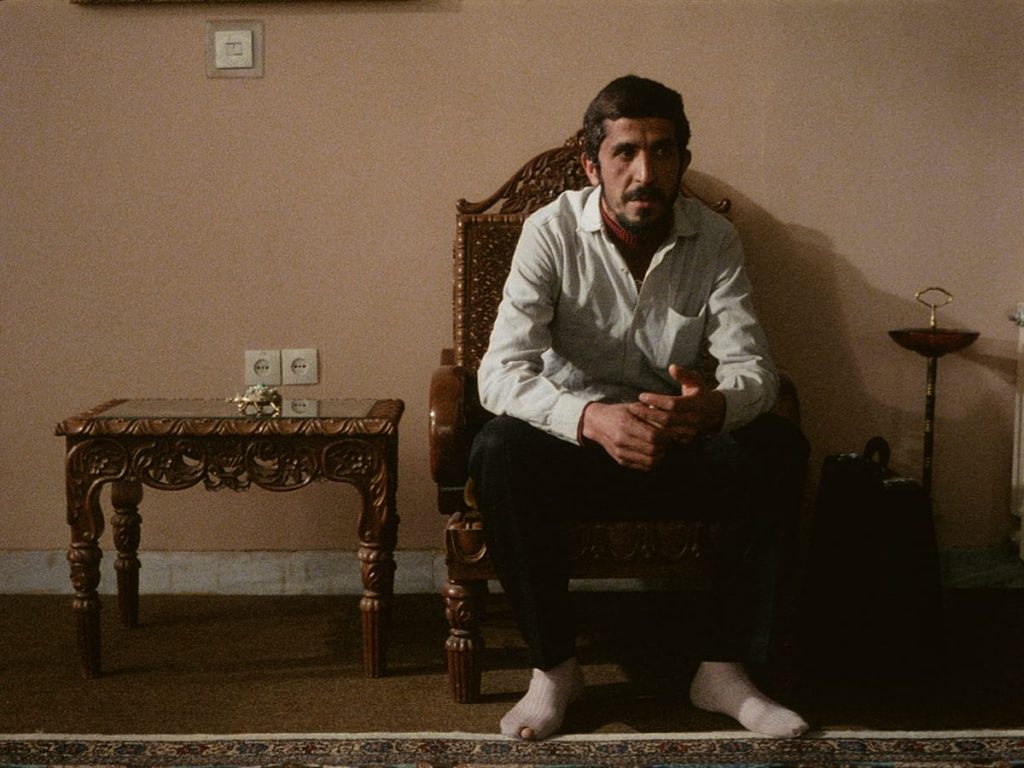Film Review: Close-Up (1990)



I’ll admit I’m a sucker for films about identity and the loss thereof, but I wasn’t prepared for Close-Up. Director Abbas Kiarostami handles this bizarre yet true account of a young man who impersonates a famous Iranian filmmaker with the utmost sympathy for his subject. Close-Up’s protagonist (or antagonist depending on how you look at it) isn’t exactly crazy, but he is troubled. His story is one of daring and guile – and cinematic obsession – but also one of complete chance and ineptitude. The actual story is only part of the tale, however, as Kiarostami uses a combination of courtroom footage and reenactments from the actual participants to blend reality, identity, and memory together in a way that is nothing short of fascinating.

Describing the plot is difficult without first explaining just what Close-Up is and isn’t. It isn’t a documentary even though it uses real courtroom footage. It’s not exactly a narrative either though, even if much of the story is told through staged recreations of actual events (using the real people who lived the events in the first place). So, what is it then? Well, what about this: it’s a film about the power of film within a film about the power of film. How’s that?

Hossain Sabzian is a young man who loves movies. One day while riding the bus, he finds himself in a conversation with a woman about famous Iranian director Mohsen Makhmalbaf. In a moment of strange desperation, Sabzian decides to tell the woman, Mrs. Mahrokh Ahankhah, that he is Makhmalbaf. She believes him and takes him home to meet her family. Kiarostami doesn’t open the film with this information, though. He makes us work for it through a dramatization of Sabzian’s arrest using the real-life parties involved and consisting mostly of a mundane cab ride and seemingly idle chit-chat. It is, however, far from mundane and anything but idle.

The plot thickens. Kiarostami, after reading a newspaper article by Hossain Farazmand (who was the impetus for the arrest) entitled “Bogus Makhmalbaf Arrested,” petitions the judge to allow him to film Sabzian’s trial. What follows, along with more dramatizations of the events that took place at the Ahankhah household over a two-week period, is Sabzian’s courtroom explanation of why he attempted to pass himself off as Mohsen Makhmalbaf. He’s questioned again and again and each time his answers are slightly different. He’s thinking them out as he goes and doing so with honesty and sincerity. Never is there a sense that he had malicious intent (in fact, he’s only charged with petty fraud), but listening to how his mind rationalizes his actions is an engrossing experience. He lives for art, and through some very unusual circumstances, finds himself with the opportunity to live as an artist.

Kiarostami never lets us forget that this is a film made by a filmmaker. Regardless of how it’s presented, we are witnessing a piece of cinema that’s been carefully crafted. That it tells a real story using the real participants might muddy the waters but it’s still just a story. Sabzian struggles with his identity, becoming lost in the role he’s created for himself, and so do the Ahankhahs, who are very careful to not let on that they’ve been duped. All the while Kiarostami complicates the increasingly odd tale with the presence of his camera. It’s easy to get lost in their story even though we’re told outright that it’s just that – a story, and that what we see shouldn’t be taken at face value (even though it’s true). Close-Up is a maze of psychological motivations and an ode to dedicated artists and their art – however it may manifest itself.
Iran • 1990 • 98 minutes • Color • 1.33:1 • Persian • Spine #519
Criterion Special Features Include
- New, restored high-definition digital transfer, with uncompressed monaural soundtrack on the Blu-ray edition
- Audio commentary by Mehrnaz Saeed-Vafa and Jonathan Rosenbaum, authors of Abbas Kiarostami
- The Traveler, director Abbas Kiarostami’s first feature
- “Close-up” Long Shot, a documentary on Close-up’s central figure, Hossein Sabzian, six years after the film
- New video interview with Kiarostami
- A Walk with Kiarostami (2003), a documentary portrait of the director by Iranian film professor Jamsheed Akrami
- New and improved English subtitle translation
- PLUS: A booklet featuring a new essay by film critic Godfrey Cheshire
